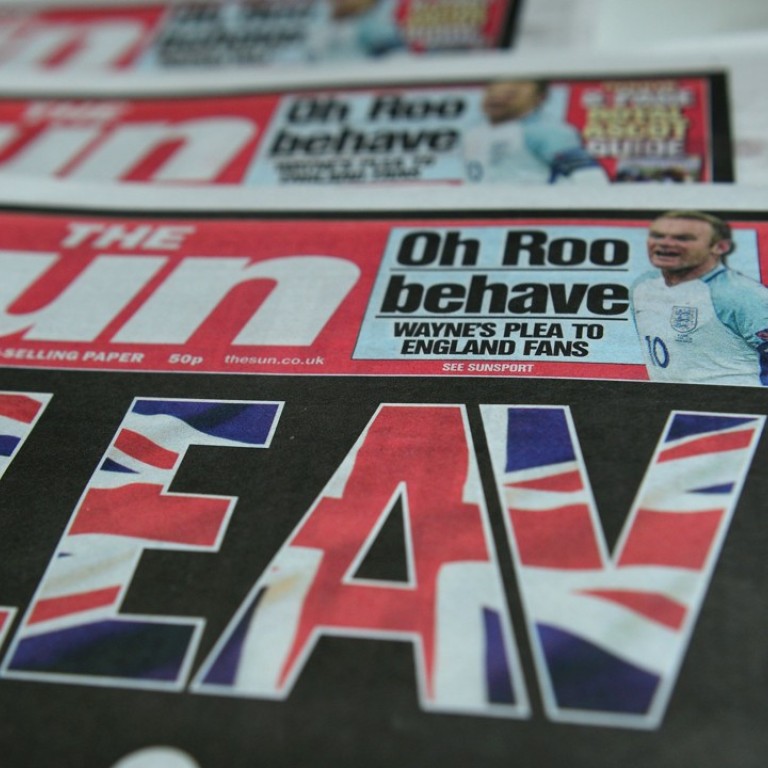
UK newspaper’s pro-Brexit argument is lost in translation, thanks to editorial in Germanic gibberish
‘Schweinkopf-unnachgiebigkeit’? No, it doesn’t make sense in any language
As negotiations to leave the European Union drag on, much of Britain’s tabloid press has frequently struck an indignant tone, blaming European allies for the slow progress.
However, one attempt to reach out to these Europeans to justify the pro-Brexit position has fallen flat on its face - thanks to a rogue translation that resulted in Germanic gibberish.
The editorial in question appeared on the website of the Sun, a fervent Brexit supporter and Britain’s best-selling newspaper, on Sunday. It aimed to convince a European audience that its leaders were harming the EU by taking a hard-line stance on Brexit - perhaps a reference to some sly English-language stories in the German press - and so it was written in German.
That was the plan, at least. However, the ensuing article mangled the German language. There were grammatical mistakes in nearly every line, with some colloquial British phrases translated literally in a way that would make no sense to a German reader (pigheaded intransigence, for example, became “schweinkopf-unnachgiebigkeit”).
Even the title, which was meant to imply European Commission President Jean-Claude Juncker and chief negotiator Michael Barnier were harming millions of people, was mistranslated - as it was written, it could also imply they were helping millions of people.
The article was little noticed when first published, but this week became the subject of mockery among German speakers.
The translation was such a mess that it begged the question: How was it published? Many reasoned that the original German text must have been run through Google Translate, though they quickly realised that it was actually too poor a translation for that. Could another, less sophisticated machine translation service have been used? Was it an intern with a dictionary, or a rogue German speaker out for sabotage?
A spokesman for the Sun denied that the text had been run through Google Translate and suggested it was simply a translation mishap.
“Since our piece was calling on European business and industry leaders to lobby their politicians for a good deal for all sides, we thought it made sense to allow our readers across Germany to see the piece,” the spokesman said. “Much like the Brexit negotiations, though, sometimes things get lost in translation - we hope that both sides can be as flexible and adaptable as the Sun in clearing up any confusion as quickly as possible.”
It certainly is true that some things have been lost in translation in Brexit talks - and knowledge of a second language may be an issue for both sides. Sixty-one percent of Britons do not speak another language in addition to their mother tongue, according to a 2012 report from the European Commission. That’s one of the lowest figures across Europe. In contrast, only 34 per cent of Germans only spoke their mother tongue, and many expect the English language to further lose its importance in a post-Brexit EU.
Brexiteers have accused their counterparts in the EU of being too inward-looking in their negotiations over Britain leaving. But with a largely one-way language barrier, there is also a real danger that many in Britain don’t actually understand the European position at all.

